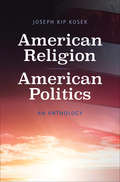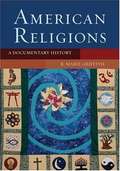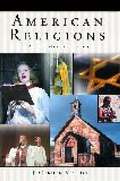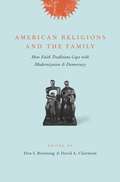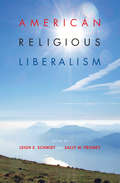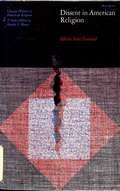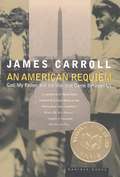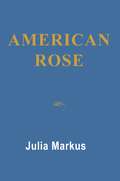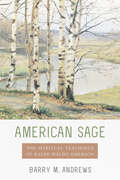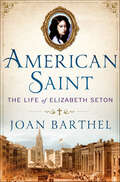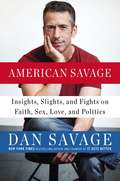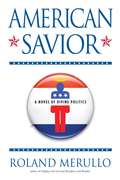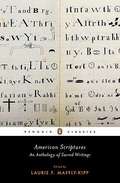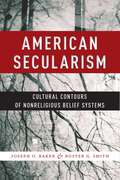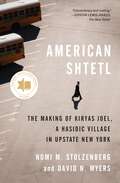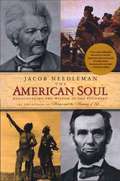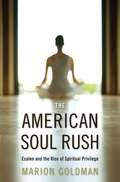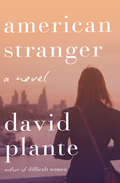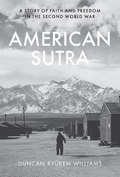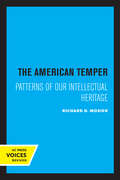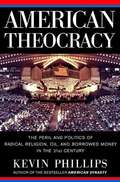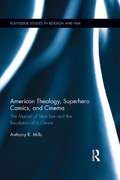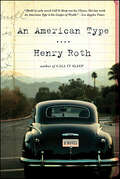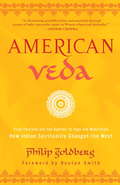- Table View
- List View
American Religion, American Politics: An Anthology
by Jon Butler Joseph Kip KosekEssential primary sources reveal the central tensions between American politics and religion throughout the nation’s history Despite the centrality of separation of church and state in American government, religion has played an important role in the nation’s politics from colonial times through the present day. This essential anthology provides a fascinating history of religion in American politics and public life through a wide range of primary documents. It explores contentious debates over freedom, tolerance, and justice, in matters ranging from slavery to the nineteenth-century controversy over Mormon polygamy to the recent discussions concerning same-sex marriage and terrorism. Bringing together a diverse range of voices from Protestant, Catholic, Jewish, Muslim, and secular traditions and the words of historic personages, from Thomas Jefferson, Abraham Lincoln, and Frances Willard to John F. Kennedy and Martin Luther King, Jr., this collection is an invaluable introduction to one of the most important conversations in America’s history.
American Religions: A Documentary History
by R. Marie GriffithReligion has played a complex, vibrant, and multifaceted role in our nation's history. One of the most effective ways to help students explore its vitality is through primary sources. American Religions: A Documentary History is the only one-volume, up-to-date collection of primary sources available for American religious history courses. Featuring a creative dual structure--the readings are arranged both chronologically and thematically--this indispensable sourcebook can be used in both historically and topically organized courses. Balancing canonical works with those by newly discovered voices, American Religions: A Documentary History includes seventy-five classic and contemporary selections from the colonial period through the present day. It offers readings by a uniquely wide range of religiously, socially, and ethnically diverse writers: theological conservatives and liberals, northerners and southerners, women and men, and African Americans and Mexican Americans alongside Anglo-Americans. The selections are long enough to stimulate serious discussion yet concise enough for students to digest easily. The volume is organized into six sections that cover different chronological periods, each of which contains writings on five themes: theological reflections, ritual and performance, spiritual autobiography, interreligious conflict and negotiation, and more expansive conceptualizations of religion. Enhanced by brief biographies of the authors, a general introduction, and section introductions, the text also includes two sample syllabi--one oriented toward a historical approach and the other toward a thematic approach. Ideal for introductory courses in religion in America and American religious history--taught both in religious studies and history departments--American Religions: A Documentary History offers students a broad yet in-depth and engaging gateway into the subject.
American Religions: An Illustrated History
by J. Gordon MeltonMelton (Institute for the Study of American Religion, Santa Barbara, California) begins with over 400 native religions being practiced at the time of European contact. He then discusses the initial colonization and religious pioneers, how religious groups dealt with their new dependence on voluntary member support and the forces leading to the Civil War, the emergence of fundamentalism and its development up to current controversies, and the leap in religious pluralism at the end of the 20th century.
American Religions and the Family: How Faith Traditions Cope with Modernization and Democracy
by Don S. Browning David A. Clairmont Eds.Religions respond to capitalism, democracy, industrialization, feminism, individualism, and the phenomenon of globalization in a variety of ways. Some religions conform to these challenges, if not capitulate to them; some critique or resist them, and some work to transform the modern societies they inhabit. <P><P>In this unique collection of critical essays, scholars of Judaism, Christianity, Islam, Hinduism, Buddhism, Confucianism, and Native American thought explore the tension between modernization and the family, sexuality, and marriage traditions of major religions in America. Contributors examine how various belief systems have confronted changing attitudes regarding the meaning and purpose of sex, the definition of marriage, the responsibility of fathers, and the status of children. They also discuss how family law in America is beginning to acknowledge certain religious traditions and how comparative religious ethics can explain and evaluate diverse family customs.Studies concerning the impact of religious thought and behavior on American society have never been more timely or important. Recent global events cannot be fully understood without comprehending how belief systems function and the many ways they can be employed to the benefit and detriment of societies. Responding to this critical need, American Religions and the Family presents a comprehensive portrait of religious cultures in America and offers secular society a pathway for appreciating religious tradition.
American Religious Liberalism (Religion in North America)
by Leigh E. Schmidt and Sally M. PromeyAn enlightening look at the surprising connections between spirituality and progressive thought in the United States. Religious liberalism in America is often associated with an ecumenical Protestant establishment. This book, however, draws attention to the broad diversity of liberal cultures that shapes America&’s religious movements. The essays gathered here push beyond familiar tropes and boundaries to interrogate religious liberalism&’s dense cultural leanings by looking at spirituality in the arts, the politics and piety of religious cosmopolitanism, and the interaction between liberal religion and liberal secularism. Readers will find a kaleidoscopic view of many of the progressive strands of America&’s religious past and present in this richly provocative volume.
American Religious Thought
by William A. ClebschThis book presents the broad current of religious dissent as a pervasive, although often hidden and ignored, stream in American life.
An American Requiem: God, My Father, and the War that Came Between Us
by James CarrollNational Book Award winner: This story of a family torn apart by the Vietnam era is &“a magnificent portrayal of two noble men who broke each other&’s hearts&” (Booklist). James Carroll grew up in a Catholic family that seemed blessed. His father, who had once dreamed of becoming a priest, instead began a career in J. Edgar Hoover&’s FBI, rising through the ranks and eventually becoming one of the most powerful men in the Pentagon, the founder of the Defense Intelligence Agency. Young Jim lived a privileged life, dating the daughter of a vice president and meeting the pope—all in the shadow of nuclear war, waiting for the red telephone to ring in his parents&’ house. James fulfilled the goal his father had abandoned, becoming a priest himself. His feelings toward his father leaned toward worship as well—until the tumult of the 1960s came between them. Their disagreements, over Martin Luther King, Jr. and the civil rights movement; turmoil in the Church; and finally, Vietnam—where the elder Carroll chose targets for US bombs—began to outweigh the bond between them. While one of James&’s brothers fled to Canada, another was in law enforcement ferreting out draft dodgers. James, meanwhile, served as a chaplain at Boston University, protesting the war in the streets but ducking news cameras to avoid discovery. Their relationship would never be the same again. Only after Carroll left the priesthood to become a writer, and a husband with children of his own, did he begin to understand fully the struggles his father had faced. In An American Requiem, the New York Times bestselling author of Constantine&’s Sword and Christ Actually offers a benediction, in &“a moving memoir of the effect of the Vietnam War on his family that is at once personal and the story of a generation . . . at once heartbreaking and heroic, this is autobiography at its best&” (Publishers Weekly).
American Rose
by Julia MarkusA moving epic novel about the Addis family follows the lives of a butcher, Charles, and his wife Etta, their two children, and Rose, the grandchild who must face the demands of their past.ROSE WAS BORN TO A FAMILY OF EXTRAORDINARY WOMEN.Her immigrant great-grandmother, the first Rose, a shrewd and beautiful fortune-teller, who gave abortions to make "a little extra"...Proud Etta, matriarch, lover of costly things, who kept a fine home with a firm hand...Delicate Helen, musical prodigy, who soared on her talent into madness.Now Rose-American Rose-must face up to all their lives in order to claim her own.Julia Markus, an English professor at Hofstra University, received the Houghton Mifflin Literary Award for her first novel, Uncle, which was followed by three well-received novels, American Rose, Friends Along the Way and A Change of Luck, as well as her critically acclaimed biographies, Dared and Done: The Marriage of Elizabeth Barrett and Robert Browning and Across An Untried Sea: Discovering Lives Hidden in the Shadow of Convention and Time. She has won a National Endowment for the Arts grant and two National Endowment for the Humanities grants. Her most recent book is J. Anthony Froude: The Last Undiscovered Great Victorian."Bickering, weeping, sulking, giggling-the Addises are vibrantly alive. Their struggles both distress and amuse us; their disappointments touch us..."--Anne Tyler, The New York Times"Moving and masterful...a novel of tremendous power and originality by one of the most gifted novelists of her generation."--Pat Conroy, author of The Prince of Tides"A story told by a writer who knows her people from the heart out...I loved it!"--Belva Plain, author of Evergreen and Random Winds
American Sage: The Spiritual Teachings of Ralph Waldo Emerson
by Barry M. Andrews&“Succeeds in making Emerson&’s ideas and recommended spiritual practices accessible. . . . [For] those interested in nineteenth-century American spiritualism.&” —Publishers Weekly Even during his lifetime, Ralph Waldo Emerson was called the Sage of Concord, a fitting title for this leader of the American Transcendentalist movement. Everything that Emerson said and wrote directly addressed the conduct of life, and in his view, spiritual truth and understanding were the essence of religion. Unsurprisingly, he sought to rescue spirituality from decay, eschewing dry preaching and rote rituals. Unitarian minister Barry M. Andrews has spent years studying Emerson, finding wisdom and guidance in his teachings and practices, and witnessing how the spiritual lives of others are enriched when they grasp the many meanings in his work. In American Sage, Andrews explores Emerson's writings, including his journals and letters, and makes them accessible to today's spiritual seekers. Written in everyday language and based on scholarship grounded in historical detail, this enlightening book considers the nineteenth-century religious and intellectual crosscurrents that shaped Emerson's worldview to reveal how his spiritual teachings remain timeless and modern, universal and uniquely American. &“An ideal companion for readers working through Emerson's essays, a reading group on spirituality, and any number of classroom situations.&” —David M. Robinson, author of Emerson and the Conduct of Life: Pragmatism and Ethical Purpose in the Later Work &“In a style that is both scholarly and highly readable, Andrews offers an insightful account of Emerson's teachings. . . . demonstrating how his ideas are relevant to readers of today who are poised between faith and unbelief.&” —Phyllis Cole, author of Mary Moody Emerson and the Origins of Transcendentalism: A Family History
American Saint: The Life of Elizabeth Seton
by Joan Barthel“A fascinating biography” of Elizabeth Seton, who shocked high society by converting to Catholicism—a faith that was illegal in New York when she was born (Booklist).In this riveting biography of the first American saint, Joan Barthel tells the mesmerizing story of a woman whose life encompassed wealth and poverty, passion and sorrow, love and loss. Elizabeth was born into a prominent New York City family in 1774—when Catholicism was illegal and priests in the city were arrested, and sometimes hanged. Her father was the chief health officer for the Port of New York, and she lived down the block from Alexander Hamilton. She danced at George Washington’s sixty-fifth Birthday Ball in cream slippers, monogrammed. When Elizabeth and her husband sailed to Italy in a doomed attempt to cure his tuberculosis, she and her family were quarantined in a damp dungeon. And when, after she was widowed, Elizabeth became a Catholic, she was so scorned that people talked of burning down her house. American Saint is the inspiring story of a brave woman who forged the way for other women who followed and who made a name for herself in a world entirely ruled by men. Founder of the Sisters of Charity, she resisted male clerical control of her religious order—and she also started America’s first Catholic school, laying the foundation of an educational system that would help countless children thrive in a new nation.“Compelling . . . an exquisite story of Seton’s inspiring life. . . . Readers interested in Catholic history and U.S. history should not overlook this important biography.” —Publishers Weekly“Barthel is a fine and insightful observer of this larger-than-life woman who was so far ahead two hundred years ago that we’re still catching up with her.” —Gloria SteinemIncludes a foreword by Maya Angelou
American Savage: Insights, Slights, and Fights on Faith, Sex, Love, and Politics
by Dan SavageOn the heels of his Emmy-winning It Gets Better campaign, columnist and provocateur Dan Savage weighs in on such diverse issues as healthcare, gun control, and marriage equality with characteristic straight talk and humor. <P> Dan Savage has always had a loyal audience, thanks to his syndicated sex-advice column "Savage Love," but since the incredible global success of his It Gets Better project-his book of the same name was a New York Times bestseller-his profile has skyrocketed. In addition, he's written for The New York Times, Rolling Stone, The Onion, GQ, The Guardian, Salon. com, and countless other widely read publications. Savage is recognized as someone whose opinions about our culture, politics, and society should not only be listened to but taken seriously. <P> Now, in American Savage, he writes on topics ranging from marriage, parenting, and the gay agenda to the Catholic Church and sex education. .
American Savior: A Novel of Divine Politics
by Roland Merullo[Book Jacket] Roland Merullo's novel American Savior posits an inspired "what if" scenario: What if Jesus, alarmed at how the earth's most powerful nation has lost its spiritual footing and dismayed at how His own teachings have been distorted--used by politicians and religious zealots to turn love into hatred and faith into a call to arms-- returns and announces that he is running for President of the United States? What if He becomes a third-party candidate, is heralded as the Son of God, and not only threatens to disrupt the status quo but poses a serious threat to the already established Democratic and Republican candidates? What would happen? How would the media react? And, more important, how would we react? Narrated by a more than slightly cynical young TV reporter, American Savior puts the reader inside the campaign waged by what is quickly dubbed the Divinity Party and follows Jesus and his modern-day disciples as they travel across the nation making speeches, reaching out to the people, and in the process arousing the ire of those who believe they know God, and who know, most assuredly, that this is not He.
American Scriptures
by Laurie F. Maffly-KippA groundbreaking collection of sacred Christian writings of American origin from Mormons, Shakers, Christian Scientists, and others. "Scripture" is any work in which the authors, translators, editors, or discoverers all claim to have received wisdom from a source outside themselves, be it revelation, enlightened philosophy, or ancient archive. For the first time in a single volume, American Scriptures gathers fifteen of these texts from religious movements with origins in the United States. Laurie F. Maffly-Kipp's concise single volume will enlighten not only readers interested in the historical and religious aspects of the scriptural texts, but also those whose interest has been piqued by such bestsellers as Angels and Demons and The Da Vinci Code.
American Secularism: Cultural Contours of Nonreligious Belief Systems (Religion and Social Transformation #3)
by Joseph O. Baker Buster G. SmithHonorable Mention, American Sociological Association Section on Religion Distinguished Book AwardA rapidly growing number of Americans are embracing life outside the bounds of organized religion. Although America has long been viewed as a fervently religious Christian nation, survey data shows that more and more Americans are identifying as “not religious.” There are more non-religious Americans than ever before, yet social scientists have not adequately studied or typologized secularities, and the lived reality of secular individuals in America has not been astutely analyzed. American Secularism documents how changes to American society have fueled these shifts in the non-religious landscape and examines the diverse and dynamic world of secular Americans.This volume offers a theoretical framework for understanding secularisms. It explores secular Americans’ thought and practice to understand secularisms as worldviews in their own right, not just as negations of religion. Drawing on empirical data, the authors examine how people live secular lives and make meaning outside of organized religion. Joseph O. Baker and Buster G. Smith link secularities to broader issues of social power and organization, providing an empirical and cultural perspective on the secular landscape. In so doing, they demonstrate that shifts in American secularism are reflective of changes in the political meanings of “religion” in American culture.American Secularism addresses the contemporary lived reality of secular individuals, outlining forms of secular identity and showing their connection to patterns of family formation, sexuality, and politics, providing scholars of religion with a more comprehensive understanding of worldviews that do not include traditional religion. Data Analyses Appendix
American Shtetl: The Making of Kiryas Joel, a Hasidic Village in Upstate New York
by Nomi M. Stolzenberg David N. MyersA compelling account of how a group of Hasidic Jews established its own local government on American soilSettled in the mid-1970s by a small contingent of Hasidic families, Kiryas Joel is an American town with few parallels in Jewish history—but many precedents among religious communities in the United States. This book tells the story of how this group of pious, Yiddish-speaking Jews has grown to become a thriving insular enclave and a powerful local government in upstate New York. While rejecting the norms of mainstream American society, Kiryas Joel has been stunningly successful in creating a world apart by using the very instruments of secular political and legal power that it disavows.Nomi Stolzenberg and David Myers paint a richly textured portrait of daily life in Kiryas Joel, exploring the community's guiding religious, social, and economic norms. They delve into the roots of Satmar Hasidism and its charismatic founder, Rebbe Joel Teitelbaum, following his journey from nineteenth-century Hungary to post–World War II Brooklyn, where he dreamed of founding an ideal Jewish town modeled on the shtetls of eastern Europe. Stolzenberg and Myers chart the rise of Kiryas Joel as an official municipality with its own elected local government. They show how constant legal and political battles defined and even bolstered the community, whose very success has coincided with the rise of political conservatism and multiculturalism in American society over the past forty years.Timely and accessible, American Shtetl unravels the strands of cultural and legal conflict that gave rise to one of the most vibrant religious communities in America, and reveals a way of life shaped by both self-segregation and unwitting assimilation.
The American Soul
by Jacob NeedlemanThe venerated religious scholar and bestselling author of Money and the Meaning of Lifeprovides a history of America from an angle never before conceived: how the spiritual vision of the founders shaped our nation. What was the spiritual vision of the founding fathers-and how can we reclaim it today? This inquiry lies at the heart of Jacob Needleman's The American Soul. In mini-biographies of the founders-including Washington, Jefferson, and Franklin-Needleman explores their core inner beliefs, their religious and spiritual sensibilities, and their individual understandings of the purpose of life. The founders, he argues, conceived of an "inner democracy": a continual pursuit of wisdom and self-improvement that would undergird the outer democracy in which we live. Needleman also explores how the religious and spiritual traditions of the Native Americans, the African slaves, and America's early mystical communities, such as those based in Quakerism, wielded an enormous -and sometimes hidden-impact on the shape of our young nation. The American Soulgives readers a new conception of what America meant in its founding, and what it can mean today.
The American Soul Rush: Esalen and the Rise of Spiritual Privilege (Qualitative Studies in Religion #3)
by Marion GoldmanYoga. Humanistic Psychology. Meditation. Holistic Healing. These practices are commonplace today. Yet before the early 1960s they were atypical options for most people outside of the upper class or small groups of educated spiritual seekers.Esalen Institute, a retreat for spiritual and personal growth in Big Sur, California, played a pioneering role in popularizing quests for self-transformation and personalized spirituality. This “soul rush” spread quickly throughout the United States as the Institute made ordinary people aware of hundreds of ways to select, combine, and revise their beliefs about the sacred and to explore diverse mystical experiences. Millions of Americans now identify themselves as spiritual, not religious, because Esalen paved the way for them to explore spirituality without affiliating with established denominationsThe American Soul Rush explores the concept of spiritual privilege and Esalen’s foundational influence on the growth and spread of diverse spiritual practices that affirm individuals’ self-worth and possibilities for positive personal change. The book also describes the people, narratives, and relationships at the Institute that produced persistent, almost accidental inequalities in order to illuminate the ways that gender is central to religion and spirituality in most contexts.
American Stranger: A Novel
by David PlanteA daughter of Jewish refugees searches for love and a spiritual home in this novel by the National Book Award–nominated author of Difficult Women. Brought up in a secular household on Manhattan&’s Upper East Side, Nancy Green knows suspiciously little about her parents&’ past. She knows they escaped Germany, avoiding the fate of so many of their fellow Jews during World War II, but the few family heirlooms they brought to the United States are reminders of a lost life that, for Nancy, remains shrouded in mystery. She seeks connection and a sense of belonging, a relationship in which she can find some sort of religious fulfillment. Unfortunately, Nancy&’s first encounter is with a Hasidic man who, dissatisfied with Judaism, has taken vows to become a monk. Then, while studying English literature in Boston, she meets a Catholic boy who captures her interest, but he&’s desperate to escape his overbearing mother and the clutches of the Church. After a devastating breakup, Nancy finally settles down with a husband whose background and beliefs seem at least similar to her own. Perhaps now she&’ll stop yearning for something more, and trade volatility and heartbreak for a sensible, practical life. But forcing a fit—into a society, a sect, a family, or even a marriage—isn&’t easy for anyone, and Nancy still has a long way to travel before she finds her true home. From an acclaimed author of both fiction and memoirs, including National Book Award finalist The Family, American Stranger is a wise and insightful story about the search for identity, and how our real lives are far more complex than our labels. &“Plante . . . is always worth reading.&” —The Washington Post
American Sutra: A Story of Faith and Freedom in the Second World War
by Duncan Ryūken WilliamsDuncan Ryūken Williams reveals the little-known story of how, in the darkest hours of World War II when Japanese Americans were stripped of their homes and imprisoned in camps, a community of Buddhists launched one of the most inspiring defenses of religious freedom in our nation’s history, insisting that they could be both Buddhist and American.
The American Temper: Patterns of Our Intellectual Heritage
by Richard D. MosierThis title is part of UC Press's Voices Revived program, which commemorates University of California Press’s mission to seek out and cultivate the brightest minds and give them voice, reach, and impact. Drawing on a backlist dating to 1893, Voices Revived makes high-quality, peer-reviewed scholarship accessible once again using print-on-demand technology. This title was originally published in 1952.
American Theocracy: The Peril and Politics of Radical Religion, Oil and Borrowed Money in the 21st Century
by Kevin PhillipsFrom America's premier political analyst, an explosvie examination of the coalition of forces that threatens the nation in this century.
American Theology, Superhero Comics, and Cinema: The Marvel of Stan Lee and the Revolution of a Genre (Routledge Studies in Religion and Film)
by Anthony MillsStan Lee, who was the head writer of Marvel Comics in the early 1960s, co-created such popular heroes as Spider-Man, Hulk, the X-Men, the Fantastic Four, Iron Man, Thor, and Daredevil. This book traces the ways in which American theologians and comic books of the era were not only both saying things about what it means to be human, but, starting with Lee they were largely saying the same things. Author Anthony R. Mills argues that the shift away from individualistic ideas of human personhood and toward relational conceptions occurring within both American theology and American superhero comics and films does not occur simply on the ontological level, but is also inherent to epistemology and ethics, reflecting the comprehensive nature of human life in terms of being, knowing, and acting. This book explores the idea of the "American monomyth" that pervades American hero stories and examines its philosophical and theological origins and specific manifestations in early American superhero comics. Surveying the anthropologies of six American theologians who argue against many of the monomyth’s assumptions, principally the staunch individualism taken to be the model of humanity, and who offer relationality as a more realistic and ethical alternative, this book offers a detailed argument for the intimate historical relationship between the now disparate fields of comic book/superhero film creation, on the one hand, and Christian theology, on the other, in the United States. An understanding of the early connections between theology and American conceptions of heroism helps to further make sense of their contemporary parallels, wherein superhero stories and theology are not strictly separate phenomena but have shared origins and concerns.
American Transcendentalists: Their Prose and Poetry
by Perry MillerA compilation of American transcendental poetry and prose--Emerson, Thoreau, and others.
An American Type: A Novel
by Henry Roth“His early novel Call It Sleep was his Ulysses. His late work An American Type is his Grapes of Wrath.”—Thane Rosenbaum, Los Angeles Times This “glorious, evocative, literary novel for the ages” (Los Angeles Times) has finally taken its place within the great canon of American fiction. Set during the Great Depression, against a backdrop of New York’s glimmering skyscrapers and Los Angeles’s seedy motor courts, this autobiographical work concludes the unparalleled saga of Henry Roth, whose classic Call It Sleep, published in 1934, went on to become one of Time’s 100 best American novels of the twentieth century. With echoes of Nathanael West and John Steinbeck, An American Type is a heartrending statement about American identity and the universal transcendence of love.
American Veda: From Emerson and the Beatles to Yoga and Meditation How Indian Spirituality Changed the West
by Philip GoldbergIn February 1968 the Beatles went to India for an extended stay with their new guru, Maharishi Mahesh Yogi. It may have been the most momentous spiritual retreat since Jesus spent those forty days in the wilderness. With these words, Philip Goldberg begins his monumental work, American Veda, a fascinating look at India’s remarkable impact on Western culture. This eye-opening popular history shows how the ancient philosophy of Vedanta and the mind-body methods of Yoga have profoundly affected the worldview of millions of Americans and radically altered the religious landscape. What exploded in the 1960s actually began more than two hundred years earlier, when the United States started importing knowledge as well as tangy spices and colorful fabrics from Asia. The first translations of Hindu texts found their way into the libraries of John Adams and Ralph Waldo Emerson. From there the ideas spread to Henry David Thoreau, Walt Whitman, and succeeding generations of receptive Americans, who absorbed India’s “science of consciousness” and wove it into the fabric of their lives. Charismatic teachers like Swami Vivekananda and Paramahansa Yogananda came west in waves, prompting leading intellectuals, artists, and scientists such as Aldous Huxley, Joseph Campbell, Allen Ginsberg, J. D. Salinger, John Coltrane, Dean Ornish, and Richard Alpert, aka Ram Dass, to adapt and disseminate what they learned from them. The impact has been enormous, enlarging our current understanding of the mind and body and dramatically changing how we view ourselves and our place in the cosmos. Goldberg paints a compelling picture of this remarkable East-to-West transmission, showing how it accelerated through the decades and eventually moved from the counterculture into our laboratories, libraries, and living rooms. Now physicians and therapists routinely recommend meditation, words like karma and mantra are part of our everyday vocabulary, and Yoga studios are as ubiquitous as Starbuckses. The insights of India’s sages permeate so much of what we think, believe, and do that they have redefined the meaning of life for millions of Americans—and continue to do so every day. Rich in detail and expansive in scope, American Veda shows how we have come to accept and live by the central teaching of Vedic wisdom: “Truth is one, the wise call it by many names.”
